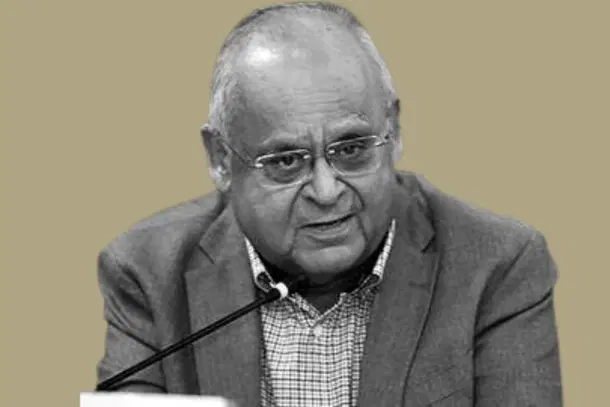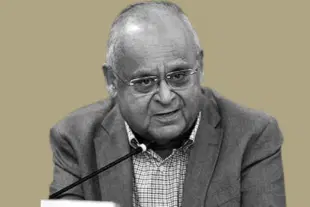News Brief
Ex-RAW Chief Vikram Sood On Why Trump Is Boosting US-Pakistan Ties Amid Operation Sindoor Dispute
Swarajya News Staff
Oct 02, 2025, 06:11 PM | Updated 06:11 PM IST
Save & read from anywhere!
Bookmark stories for easy access on any device or the Swarajya app.


Former Research and Analysis Wing (RAW) chief Vikram Sood has shed light on the recent improvement in US-Pakistan relations, attributing it to US President Donald Trump's personal dissatisfaction with India.
Speaking on October 2, 2025, Sood claimed that Trump's 'personal pique' stemmed from India's denial of his role in brokering a ceasefire during Operation Sindoor earlier this year.
This operation, launched by India in response to a terror attack in Pahalgam, involved missile strikes on Pakistani targets, escalating tensions between the nuclear-armed neighbours. Sood elaborated that the US deep state is actively working against India's economic progress, preferring to bolster Pakistan instead.
He pointed out that after India refuted Trump's assertions of mediating the ceasefire, Washington strengthened ties with Islamabad. This shift was evident in recent high-level meetings, including Trump's discussions with Pakistan Prime Minister Shehbaz Sharif and Army Chief Asim Munir at the White House.
During these talks, Pakistan showcased samples of rare earth minerals, aiming to secure US investments potentially worth $500 million, as reported in various sources.
Foreign Secretary Vikram Misri had then accused Pakistan of violating ceasefire understandings. Trump initially claimed credit for halting the conflict, stating he 'settled a very big India-Pakistan conflict' in June 2025. However, Prime Minister Narendra Modi and Indian officials firmly denied any US involvement, leading to a diplomatic row.
Sood described this as a turning point, where Trump's frustration resulted in punitive measures like imposing 50% tariffs on Indian goods, further straining bilateral relations. Meanwhile, Sood criticised Pakistan's military leadership, calling Army Chief Munir a 'Jihadi General' and the country a 'banana republic with a nuclear bomb'.
He highlighted the ideological bent of Pakistani officers and the growing Balochistan movement, now involving the middle class. Sources revealed that Pakistan's strategy included leveraging its geographic position near China and Iran to appeal to US interests, positioning itself as a military launchpad in Asia.
This comes amid Trump's repeated assertions of resolving global conflicts, including claims about Gaza, though often contested. In his remarks, Sood praised India's stance, noting that by rejecting Trump's narrative, New Delhi asserted its independence.
However, he warned of long-term implications, such as increased US support for Pakistan's mineral wealth exploitation.





